MOMENTUM PRIVATE HEALTHCARE DELIVERY
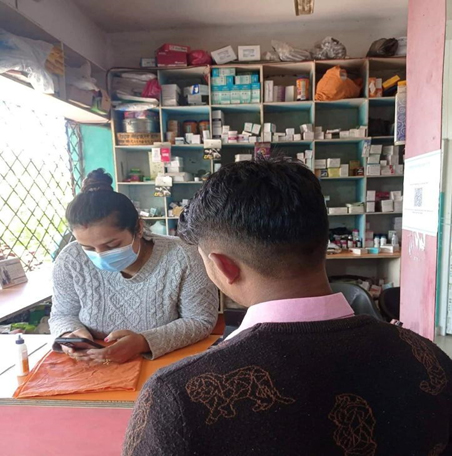
Nepal CRS Company implemented the MOMENTUM Private Healthcare Delivery (MPHD) project in two provinces of Nepal from May 2021 to January 2025. The project was part of the broader suite of innovative awards under the MOMENTUM initiative, funded by the U.S. Agency for International Development (USAID), aimed at holistically improving maternal, newborn, and child health services, voluntary family planning, and reproductive healthcare (MNCH/FP/RH) in partner countries worldwide. The MPHD project supported the expansion of public–private partnerships to strengthen the enabling environment for MNCH/FP/RH in alignment with the overall objectives of the MOMENTUM suite of awards.
93 SDPs engaged in PY1-2 transitioned from the quarterly support provided during the Maintenance stage to the Check-in stage and routine coaching/mentoring ceased from June 2024. The project-supported SDPs receive differentiated levels of intervention over time in the Preparatory/Intensive, Maintenance, and Check-in stages of the project. Interventions in the Preparatory/Intensive stage for the 7733 SDPs engaged in PY3 were completed in June 2024. The project initially provided monthly onsite coaching/mentoring to these SDPs before transitioning to quarterly onsite coaching support provided during the Maintenance stage.
THE GOAL
The goal of the project was to establish a successful business model for the private sector to provide quality FP services to adolescents and young people in Nepal.
OBJECTIVE:
GEOGRAPHIC FOCUS
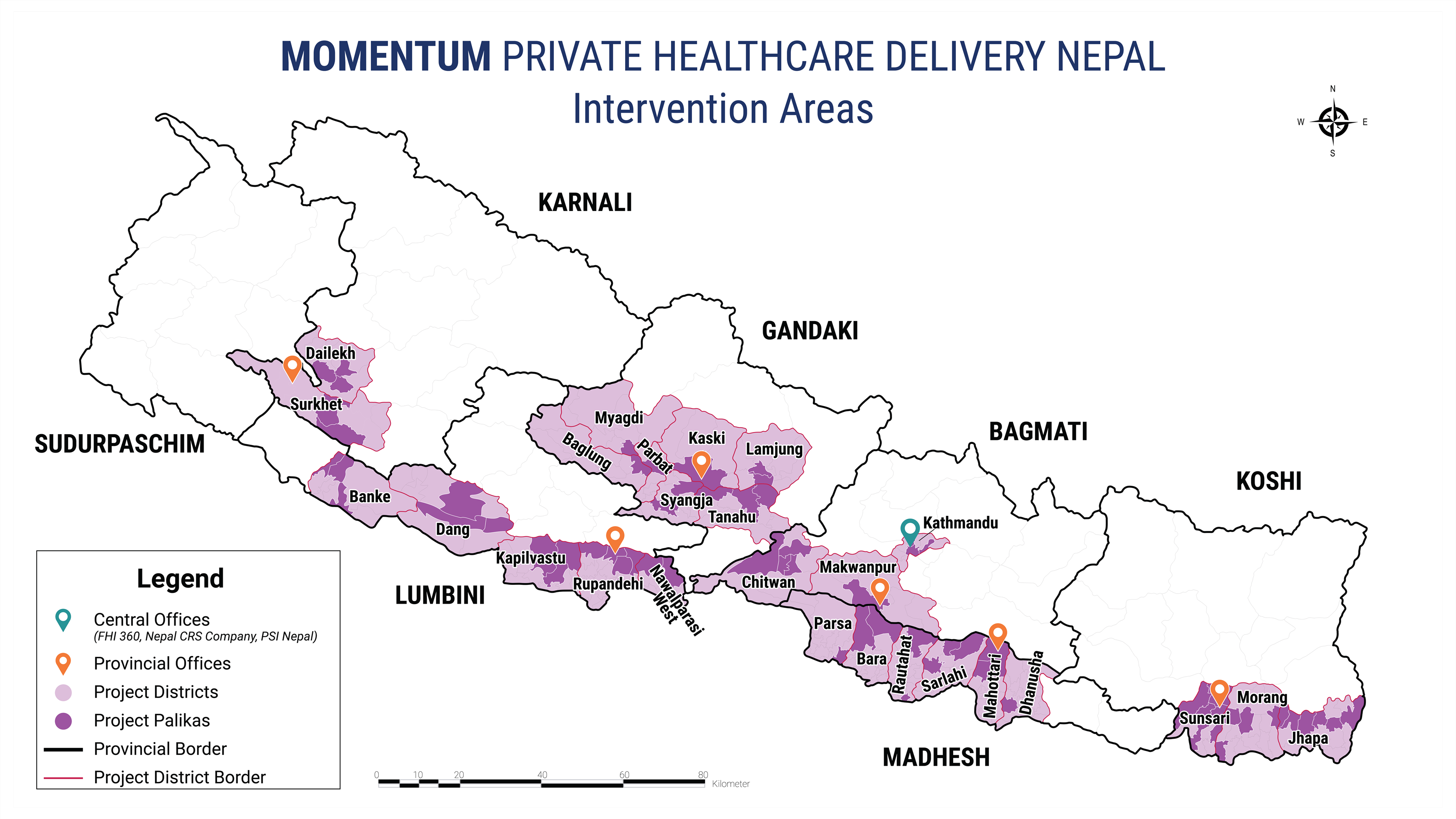
Key Accomplishments Across MPHD Priority Technical Areas
Private Sector Engagement:
Adolescent responsive contraceptive service (ARCS) readiness was enhanced through continued capacity strengthening of 916 project-supported service delivery points (SDPs) (105 SDPs engaged since PY1-21 and 811 SDPs as part of scale-up in PY32) through training, monthly Quality Assurance/Quality Improvement (QA/QI) assessments, and onsite coaching to help these SDPs deliver quality FP services; carrying out health facility-initiated demand generation (HFIDG) activities; and adopting good business practices relating to business planning, record keeping and financial management. All SDPs were supported to ensure the availability of i) a counseling space to maintain the privacy and confidentiality of clients; ii) at least one adolescent sexual and reproductive health (ASRH) trained provider; iii) ASRH booklets for adolescents; iv) stock of at least four short-acting contraceptive methods; and v) referrals for Long- Acting Reversable Contraceptive (LARC) and permanent methods, to ensure access to a wide range of FP services. To expand FP method-mix in the private sector, selected providers were trained in implant and depot-medroxyprogesterone acetate- intramuscular (DMPA-IM).
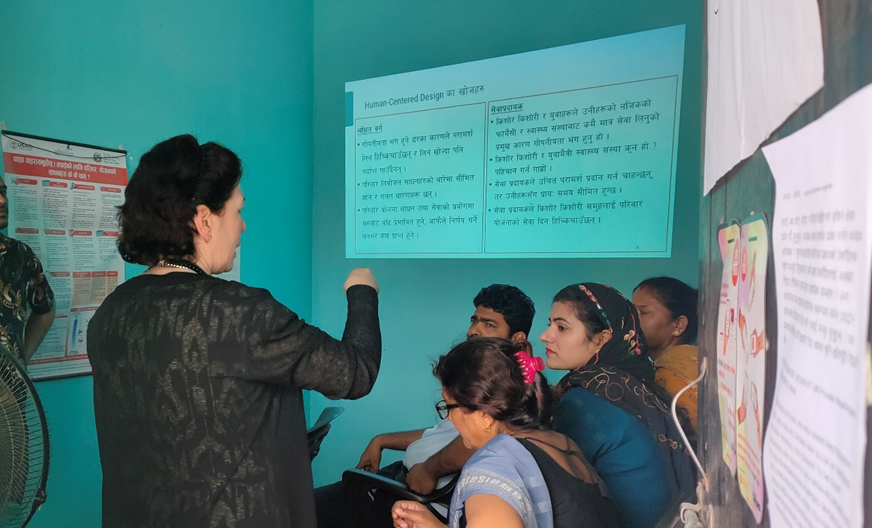
Person-Centered Care:
MPHD Nepal created multiple mechanisms to advance person-centered care by collecting clients’ perspectives to inform program-level and SDP-level decision-making.
The Person-Centered Contraceptive Counselling (PCCC) scale was included in the online client feedback mechanism and client exit interviews to measure person-centeredness of contraceptive counselling at each SDP. The online client feedback mechanism was institutionalized for all 916 SDPs engaged with the project. Client feedback was also shared with owners and providers through real-time dashboards to collectively resolve challenges to providing high-quality person-centered services.
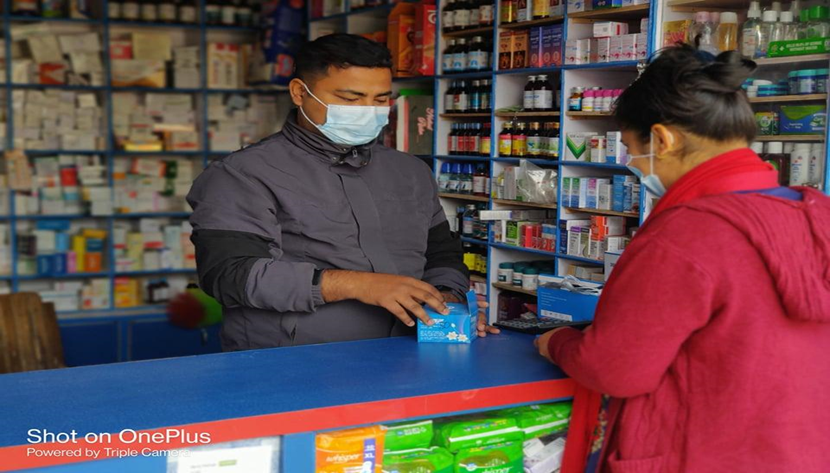
Localization:
MPHD Nepal engaged with the three tiers of national, provincial, and local governments to strengthen private sector engagement and increase stewardship and collaboration with the private sector providers and owners. The project: i) collaborated with Provincial Health Training Centers (PHTCs) to provide 42 onsite coaching and mentoring visits to improve implant services from private providers; ii) conducted 62 joint monitoring visits with municipality governments to private sector SDPs to promote engagement with municipality health priorities and encourage sustained government monitoring of private sites; iii) supported SDPs to submit their service data to the respective municipal authorities; iv) trained 107 private providers on health service data integration into the government system resulting in SDPs reporting regularly; and iv) conducted quarterly engagements with provincial (16 meetings) and municipal (308 meetings) stakeholders to strengthen public-private linkages.
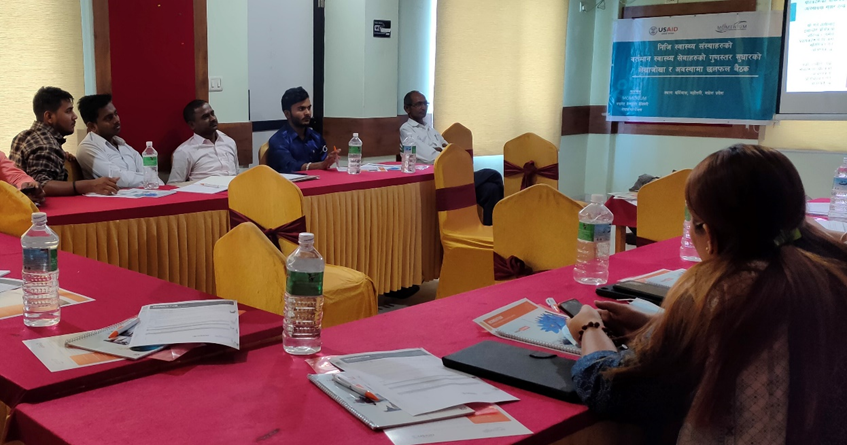
KEY ACCOMPLISHMENTS THAT DELIVERED RESULTS